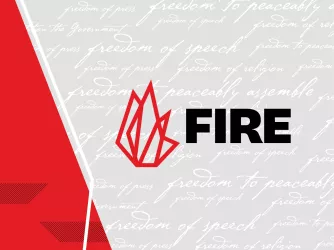Table of Contents
During March Madness, Georgia Tech alums reflect on big victory in different kind of court

March Madness is about more than basketball — it’s about celebrating rivalries. But not all of Georgia Tech’s rivals are 6-foot-9-inch basketball stars from their in-state foes, the University of Georgia: Two Tech students were once more interested in achieving victory against some very unexpected rivals, in an entirely different kind of court.
Orit Kwasman and Ruth Malhotra, two conservative Tech alumnae, penned an op-ed for the Southern Political Report yesterday — “March Madness on Campus and in the Courts; Remembering When We Defeated Georgia Tech” — reflecting on the events that caused them to take their own university to court more than a decade ago.
In March 2006, the pair filed a federal civil rights lawsuit against then Tech President G. Wayne Clough and other top officials, accusing them of discriminating against conservative students who spoke out against homosexuality, feminism, and other issues on campus.
In the name of “tolerance” and “diversity,” Georgia Tech officials forced us to take down a display confronting radical feminism, pressured us to participate in “Coming Out Week,” and prevented our organizations from accessing school resources — just a few examples from our litany of run-ins with the campus tolerance tyrants.
The duo described how Clough (now president emeritus) shockingly told them that because they exercised their First Amendment rights, perhaps a college education wasn’t for them:
Professors, academic deans, and eventually the president of Georgia Tech told us we were “not a good fit” for the school because of our deeply held beliefs; that it was “people like you” who were responsible for the lack of civility on campus; and that we needed to “go through mediation” to change our views on matters of morality and public policy. When confronted about the administration’s hypocrisy and indoctrination, one dean brazenly admitted, “Students have been indoctrinated for the first 18 years of their lives by their parents and by their churches; we only have four years to undo the damage.”
In reality, the damage seemed to come from an environment intolerant of opposing viewpoints and robust debate. According to the Alliance Defending Freedom, which sponsored the case, the students “found themselves mocked, cursed, defamed on posters, and threatened with rape and even murder. University officials offered virtually no protection or support, so outside police were assigned to protect the girls for the duration of their time on campus.”
But it paid off.
After three years in federal court, Malhotra and Kwasman won the case — a victory for lovers of free speech and religious liberty everywhere. Tech removed the unconstitutional speech code and eliminated “a program of state religious indoctrination called Safe Space that explicitly compared those who have traditional views of sexual morality to slaveowners.” However, to this day, Tech maintains other speech codes that can silence speech and violate students’ First Amendment rights, earning it a yellow light rating in FIRE’s Spotlight database.
FIRE applauds Malhotra and Kwasman for standing up for free speech in an environment where their views were unpopular, and for continuing the fight today.
Rivalries don’t end after just one game, and it’s important to stay woke to infringements of student and faculty civil rights. FIRE encourages students around the country to take a stand when their First Amendment rights are being suppressed. FIRE will stand with you.
Editor’s Note: Author Daniel Burnett is a 2011 graduate of the University of Georgia, whose basketball team beat their rivals, the Georgia Tech Yellow Jackets, on their home turf by 17 points.
Recent Articles
Get the latest free speech news and analysis from FIRE.

Introducing the SPFI Sentinel: Free speech stories by — and for — student journalists

Why YouTube caving to Trump is cowardly

FIRE statement on the White House’s Compact for Academic Excellence in Higher Education
